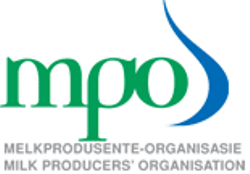
Hand with pen on application form fot registering claim health insurance
Written by the LWO Employers Organisation
Employers manage business risks on a daily basis to ensure the business’s profitability and sustainability. Restrictive labour regulations is one of the factors that make it very difficult to do business in South Africa.
It is a modern trend among business owners to outsource non-core activities, such as security, financial services, transport, marketing, etc. This puts the employer in the position to spend more time on core activities.
What are the options?
The moment an employer-employee relationship is established, there are strict legal requirements that the employer must comply with, irrespective of the number of employees. To comply with these requirements, the employer can consider mainly six options:
(internal)
- employer handles it personally;
- employer creates the capacity internally by employing a legal expert (labour law) full time;
(outsource to a service provider)
- local attorney;
- labour consultant;
- unregistered employers’ organisation; or
- employers’ organisation that is registered with the Department of Labour.
Employers must clearly realise that there are definite differences between these options that can have major implications with specific reference to cost, specialist knowledge, spectrum of services, infrastructure, and availability, etc. When outsourcing, the following criteria should be considered:
- Can the institution represent employers at the Commission for Conciliation, Mediation, and Arbitration (CCMA), Bargaining Councils, and Labour Court? Take note that only an employers’ organisation that is registered with the Department of Labour has the right to appear in these forums.
- Does the institution specialise in labour law? Does the institution have appropriate experience?
- Does the institution provide specialist services on the employer’s premises?
- Does the institution offer a cost-effective solution?
- Apart from disciplinary hearings, CCMA matters, restructuring, and other procedures, compliance with labour law holds a strong administrative component for employers, as well as continuous advice to resolve disputes in the workplace as quickly as possible. The institution must also offer a cost-effective solution for these typical daily challenges that commonly occur in the workplace.
- How long has the institution been in business and how is business continuity ensured?
- Is the employer at the mercy of the institution’s availability and operational functioning, or can the institution guarantee assistance and service according to the employer’s needs?
- Does the employer’s needs drive the institution in terms of service delivery?
- Does the institution have a proactive approach?
- Does the institution mainly provide assistance when there is already a dispute in the workplace, or does the institution aim to create an organised working environment compliant with labour law, and proactively manage and where possible prevent disputes?
What can go wrong?
An employee can refer a dispute in the workplace at any time to the CCMA for mediation. The vast majority of cases found in favour of the employee, is due to the employer who did not follow the correct procedure. This has of course huge financial implications for the employer. Possible orders against the employer at the CCMA typically amount to 3–12 months of the employee’s salary and/or reinstatement. At the Labour Court, it can amount to 3–24 months of the employee’s salary and/or reinstatement. Employers can also face severe fines and even jail time by the Department of Labour in cases where the employer does not comply with labour law.
There are mainly three types of incidents whereby it is known that the employer does not run his business in line with labour legislation. These incidents are usually beyond the employer’s control and includes:
- inspection by the Department of Labour;
- injury on duty; or
- an employee that refers a dispute to the CCMA or Department of Labour.
It is clear that the employer should rather be proactive in finding a solution and ensure that he continuously complies with labour law in order to protect his business and rights as an employer.
Published on Sunday, 1st December 2019 - 08:00
Recent Posts
disclaimer









